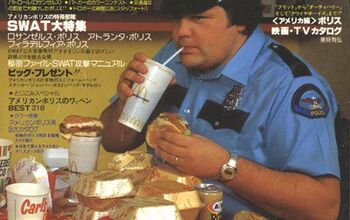Federal Appeals Court Backs Traffic Stop Patdown
As long as a police officer cites his own safety as the reason, he may frisk any motorist during a traffic stop and remove objects from his pockets, according to a ruling handed down Tuesday by the US Court of Appeals for the Tenth Circuit. A three-judge panel evaluated whether Officer Joe Moreno was following the law when he searched driver Ivan Rochin after he was pulled over in Albuquerque, New Mexico for driving with an expired registration.
“No one likes being pulled over for a traffic violation,” Judge Neil M. Gorsuch wrote for the court. “Still, for most drivers the experience usually proves no more than an unwelcome (if often self-induced) detour from the daily routine. But not every traffic stop is so innocuous. Sometimes what begins innocently enough turns violent, often rapidly and unexpectedly. Every year, thousands of law enforcement officers are assaulted — and many are killed — in what seem at first to be routine stops for relatively minor traffic infractions.”
According to the latest available Federal Bureau of Investigation crime statistics, six officers were killed while pursuing a ordinary traffic infractions in 2009. That represents 0.0008 percent of the 706,886 sworn officers nationwide. Four of these patrolmen were gunned down as they approached the stopped vehicle, and only one was shot while standing at the offender’s vehicle window.
In this case, Rochin happened to match the description of someone wanted for a drive-by shooting. Moreno ordered him out of the car and performed a pat-down search that turned up glass pipes containing drugs. Rochin objected that it was absurd for the officer to remove the pipe from his pants on “officer safety” grounds, but the court ruled such a search was objectively reasonable under the Fourth Amendment.
“A reasonable officer could have concluded that the long and hard objects detected in Mr. Rochin’s pockets might be used as instruments of assault, particularly given that an effort to ask Mr. Rochin about the identity of the objects had proved fruitless,” Gorsuch wrote. “To be sure, the pipes Mr. Rochin turned out to have aren’t conventionally considered weapons. But a reasonable officer isn’t credited with x-ray vision and can’t be faulted for having failed to divine the true identity of the objects.”
The court upheld Rochin’s conviction. A copy of the decision is available in a 20k PDF file at the source link below.
Source:
US v. Rochin (US Court of Appeals, Tenth Circuit, 12/13/2011)
[Courtesy: Thenewspaper.com]
More by The Newspaper
Latest Car Reviews
Read moreLatest Product Reviews
Read moreRecent Comments
- El scotto UH, more parking and a building that was designed for CAT 5 cable at the new place?
- Ajla Maybe drag radials? 🤔
- FreedMike Apparently this car, which doesn't comply to U.S. regs, is in Nogales, Mexico. What could possibly go wrong with this transaction?
- El scotto Under NAFTA II or the USMCA basically the US and Canada do all the designing, planning, and high tech work and high skilled work. Mexico does all the medium-skilled work.Your favorite vehicle that has an Assembled in Mexico label may actually cross the border several times. High tech stuff is installed in the US, medium tech stuff gets done in Mexico, then the vehicle goes back across the border for more high tech stuff the back to Mexico for some nuts n bolts stuff.All of the vehicle manufacturers pass parts and vehicles between factories and countries. It's thought out, it's planned, it's coordinated and they all do it.Northern Mexico consists of a few big towns controlled by a few families. Those families already have deals with Texan and American companies that can truck their products back and forth over the border. The Chinese are the last to show up at the party. They're getting the worst land, the worst factories, and the worst employees. All the good stuff and people have been taken care of in the above paragraph.Lastly, the Chinese will have to make their parts in Mexico or the US or Canada. If not, they have to pay tariffs. High tariffs. It's all for one and one for all under the USMCA.Now evil El Scotto is thinking of the fusion of Chinese and Mexican cuisine and some darn good beer.
- FreedMike I care SO deeply!

































Comments
Join the conversation
As much as the civil libertardian (and, yes, I spelled that word as I meant it) who runs The Newspaper wishes that this ruling was some sort of example of judicial overreach, it's really nothing more than an extension of the settled law under Terry vs. Ohio. Reading the specific facts of the case and the well reasoned majority opinion show that the defendant (or, more specifically, defense counsel) wasted everybody's time.
I wish the TSAa at the airport could only search you under such circumstances, instead of government imposed fear-mongering BD